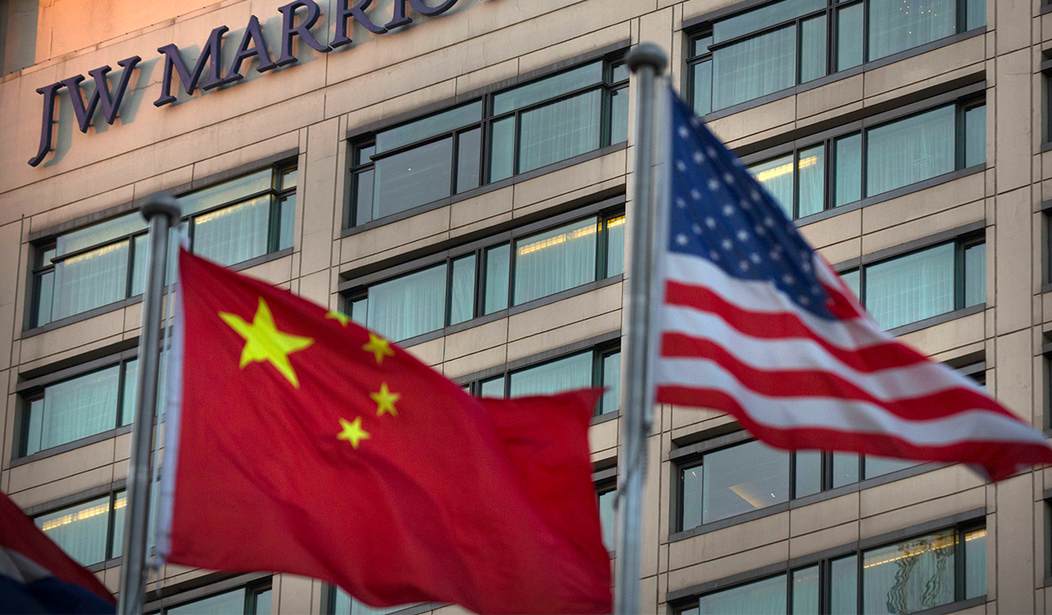China and the U.S. are in a race for preeminence in biotechnology. The U.S. is still dominant in biology and life sciences research, but China is catching up fast. At the same time, Congress and the Biden administration have enacted such severe anti-biopharmaceutical policies that China seems likely to win this race. The incoming Trump administration has an opportunity to rectify these policies and secure America’s longstanding leadership in the biotechnology sector.
As recently as five years ago, China was a bit player in biotechnology as their percentage of worldwide clinical trial activity was in the single digits. Over the last five years, China’s share of the world’s clinical trials has jumped 60 percent. If that growth continues, China could surpass the U.S. in biotech research trials within five years.
In an effort to address this threat, a concerned Congress appointed a commission on the emerging national security threats in the area of biotechnology. Before he resigned from the House, Rep. Mike Gallagher (R-WI) introduced the BIOSECURE Act that was specifically designed to counter China’s emergence in biotechnology and would discourage certain research collaborations with Chinese biotech companies with links to the country’s military.
Even Avril Hines, the Director of National Intelligence, in her annual “threat assessment” expressed concerns about the potential loss of U.S. leadership in biotechnology: “China now rivals the United States in DNA-sequencing equipment and some foundational research. Beijing's large volume of genetic data potentially positions it to lead in precision medicine and agricultural biotechnology applications.”
Moreover, there are widespread allegations of intellectual property (IP) theft by companies linked to Chinese intelligence and other threats from China cited by national security hawks.
Recommended
However, if we are going to be realistic, the greatest threat to U.S. preeminence in biotechnology comes from our own government. The U.S. will retain leadership in the biotechnology sector only if the country continues to have the most robust research infrastructure in the world. Yet, the current administration’s policies are certain to diminish the U.S. lead in life sciences research.
One study from the University of Chicago concluded that the prescription drug price controls that were part of the administration’s Inflation Reduction Act (IRA) will – alone – reduce biopharmaceutical revenue by 31 percent. One of the quickest and easiest ways for biotech companies to manage reduced revenues is to cut R&D expenses.
Some in Congress argue that those IRA price controls should be increased and applied to more drugs. An expansion of such a policy would cause a nuclear winter in U.S. life sciences research and quickly thrust China into world preeminence in biotechnology.
But, with certain current proposals, the U.S government stands to inflict significant damage to life sciences research beyond price controls. In March of 2023, the U.S. Department of Health and Human Services (HHS) and the Department of Commerce (DOC) announced that they will “develop a framework” to implement “march in rights” on patents for medicines that were developed using any federal funding. March in rights, i.e. stealing patents, could be exercised by the government if they felt the price of a medicine were too high.
The 1980 Bayh-Dole Act contains a provision allowing the U.S. government to “march in” and take the patents away from patent-holders who did not promptly commercialize technologies developed with government money. The authors of the law never envisioned that it would be used to lower prices on products that had made it to market. Some in Congress want to grab the patents, not from technologies that are slow to be commercialized, but because they arbitrarily deem the price to be too high.
The exercise of march in rights by the U.S. government would be a body blow to the U.S. biotechnology research infrastructure, as no company would partner with a U.S. university that had received federal research funds from the National Institutes of Health, the National Science Foundation or any other federal science programs. This policy would, in one fell swoop, destroy university research in the life sciences and take many brilliant university researchers out of the field of developing medicines.
Two policies are kryptonite to biotechnology research: price controls and weak intellectual property laws. The U.S. government wants to embrace both. During the expected federal policy overhaul that will accompany the beginning of President Trump’s second term, national security leaders may want to worry less about China and more about U.S. domestic policies that will end up making China the world leader in biotechnology.
William S. Smith, PhD, is Senior Fellow and Director of the Life Sciences Initiative at Pioneer Institute

























Join the conversation as a VIP Member